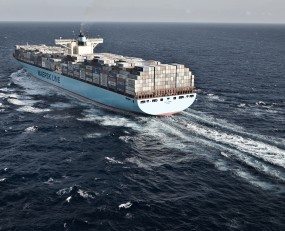
Maersk has bought KGH Customs Services as part of its strategy of diversification and development in global marine logistics.
Based in Sweden, KGH is one of the larger stand-alone customs brokerages, with a network of offices across Western Europe as well as extensive exposure to a number of industry sectors outside Scandinavia. The company has been owned by the private equity company Bridgepoint Development Capital since 2013.
The price paid was generous. Maersk stated that it acquired KGH for a “consideration of SEK 2.6bn ($279.0m) on a cash and debt free basis equivalent to a multiple of 16.3x 2019 EBITDA (Earnings Before Interest, Depreciation and Amortisation) before synergies”. However, it is worth noting that the deal included an “earn-out component contingent on future Brexit performance”. Maersk went on to assert that “when ramped up, annual EBITDA synergies from the combination are expected to amount to approximately SEK 50m-75m ($5.4m-$8.0m).”
Presumably, the price reflects the fact that “KGH has in the past years achieved double-digit annual growth resulting in a revenue of approximately SEK 890m ($95.5m) in 2019, recurring EBITDA of approximately SEK 160m ($17.2m) and an EBITDA margin of approximately 18%.”
The ‘earn-out’ is not unusual in these private-equity related deals, however, it is interesting that Brexit is mentioned, implying that KGH is heavily orientated to British trade.
A purchase of this size cannot really be described as ‘bolt-on’. Whilst expanding into customs brokerage makes perfect sense for Maersk in its strategy of seeking to wring value out of marine based logistics. It does ask the question, what will be the relationship of KGH to Maersk’s existing customs brokerage, not least those of the freight-forwarding business Damco. Certainly, KGH will have the opportunity to extend its business globally, however, why has Maersk not already done this with its ‘Customs House’ division?
What the deal does highlight is that niche activities in logistics can be much more profitable than the often dismal, returns in container shipping. If Maersk really can stretch a business such as KGH across its global operations, it might be a bale to make a useful addition to its bottom-line.
Source: Transport Intelligence, July 7, 2020.
Author: Thomas Cullen